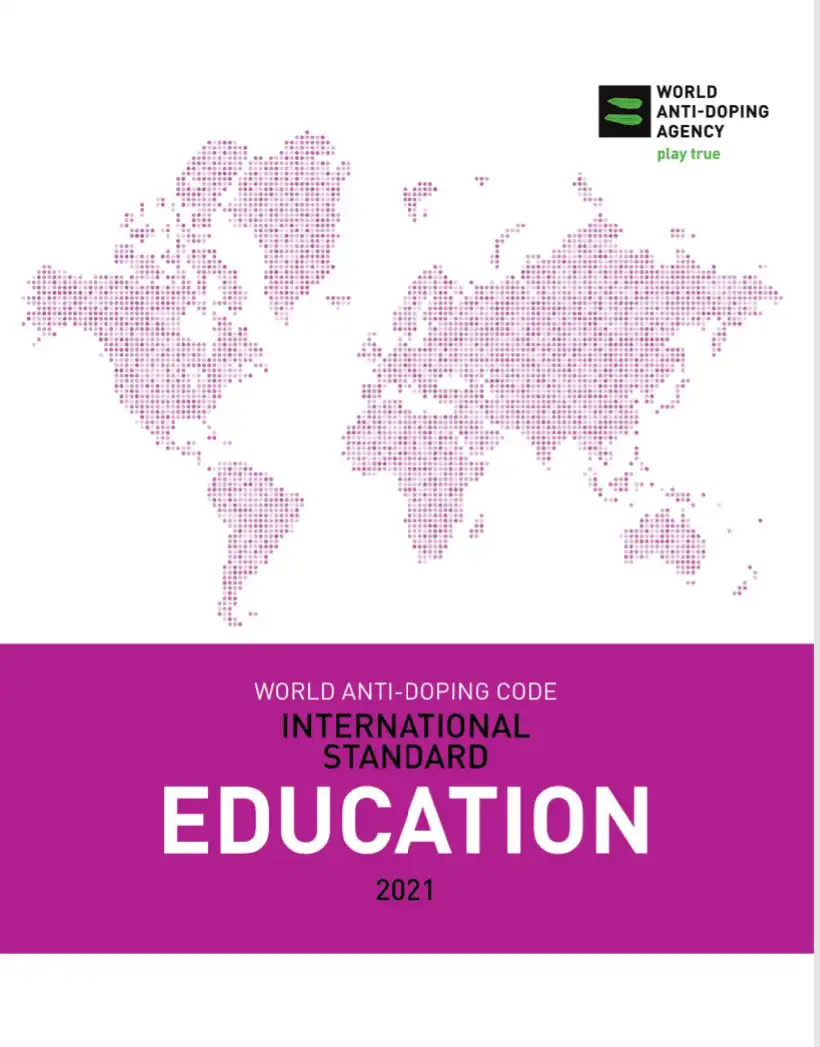Importance of Education in Anti-Doping

- September 9, 2023
Introduction
One of the two pillars of Anti-Doping worldwide is Education, the other is Testing.
As Witold Banka said at the 2022 Education Conference of WADA in Australia: "Education is the single best way to prevent doping in sport".
But what exactly is anti-doping education?
Anti-doping education refers to educational programs and initiatives aimed at raising awareness and promoting a culture of clean and fair competition in sports. The primary goal of anti-doping education is to prevent the use of performance-enhancing drugs and other prohibited substances and methods by athletes.
Who provides Anti-Doping Education?
There are several bodies providing Anti-Doping education, two of the main bodies are WADA and ITA.
World Anti-Doping Agency (WADA): WADA is the global governing body responsible for promoting, coordinating, and monitoring the fight against doping in sports. They develop and implement the World Anti-Doping Code and various educational programs to raise awareness about the dangers of doping and promote clean sports.
International Testing Agency (ITA): ITA is a global leader in providing anti-doping services to major events and international federations. They develop and implement various educational programs to raise awareness about the dangers of doping and promote clean sport.
National Anti-Doping Organizations (NADOs): Each country typically has its own NADO, which is responsible for enforcing anti-doping regulations and education within their respective jurisdictions. They work in partnership with WADA to implement anti-doping programs and education initiatives.
International Federations (IFs): International sports federations for various sports also play a significant role in providing anti-doping education to athletes participating in their respective sports. They often collaborate with WADA and NADOs to ensure consistent messaging and standards. Some of them have outsourced their anti-doping services to ITA.
Why Anti-Doping Education is important
Anti-doping education promotes fair play, ensuring that athletes compete on a level playing field without any unfair advantages gained from doping.
Doping substances can have severe health consequences for athletes. Anti-doping education helps athletes understand the risks associated with performance-enhancing drugs and encourages them to prioritize their long-term health.
It reinforces the importance of integrity in sports and upholds the values of honesty, respect, and sportsmanship.
Athletes and support personnel need to be aware of the anti-doping rules and regulations established by the World Anti-Doping Agency (WADA). Education helps them understand what is prohibited or not.
By educating athletes and those involved in sports, anti-doping organizations can increase the chances of detecting and preventing doping violations.
Which are the most important target groups?
Athletes are the primary focus of anti-doping education. They need to be aware of the prohibited substances and methods, understand the consequences of doping, and know how to apply for therapeutic use exemptions (TUEs) if necessary. Athletes also need to be informed about their rights and responsibilities regarding doping control procedures.
Coaches play a crucial role in an athlete's career and development. They need to be well-informed about anti-doping rules and regulations to guide and support their athletes appropriately. Coaches should also know about their responsibilities in promoting clean sport and the potential consequences of encouraging or facilitating doping.
Various support personnel, such as trainers, team doctors, physiotherapists, and nutritionists, can influence an athlete's decisions. It's vital that they are educated about anti-doping rules and understand their role in promoting clean sport.
The governing bodies of different sports play a significant role in implementing anti-doping policies and education. They need to be well-versed in anti-doping regulations and ensure that their athletes and members are educated appropriately.
Those responsible for organizing sports events, competitions, and tournaments should understand anti-doping protocols and ensure that doping control measures are appropriately implemented during their events.
National Anti-Doping Organizations (NADOs) and Regional Anti-Doping Organizations (RADOs) are responsible for anti-doping operations within their respective jurisdictions. They need to be well-trained knowledgeable and up-to-date about anti-doping policies and procedures to effectively carry out their roles.
Healthcare practitioners working with athletes should be educated about anti-doping rules and the potential implications of providing prohibited substances or methods to athletes.
Agents and representatives working with athletes should understand anti-doping regulations to provide accurate advice and support to their clients.
Members of the media should have a good understanding of anti-doping concepts to report accurately on doping-related matters and avoid spreading misinformation.
How to provide anti-doping education
"International Standard for Education" (ISE) is the starting point for creating an Anti-Doping Education program and outlines the requirements for anti-doping education programs worldwide. Its purpose is to ensure that consistent and effective anti-doping education is provided to athletes and other stakeholders across different countries and sports.
There are multiple efforts that could be included in the Anti-Doping educational program.
Workshops and Seminars can be conducted for athletes, coaches, medical personnel, and other stakeholders in the sports community. Experts may provide information on the dangers of doping, the testing process, and the consequences of doping violations.
Online Resources such as websites, videos, and online courses can be utilized to disseminate information to a broader audience.
Collaborating with sports organizations and schools to reach young athletes and educate them about the importance of clean sports from an early age.
Conclusion
In the coming years, there is a projected increase in the importance of Anti-Doping education. To effectively combat the issue of doping, it is crucial for both NADOS (National Anti-Doping Organizations) and National Federations to allocate resources towards investing in comprehensive Education and Awareness programs. This proactive approach will be the key to mitigating the prevalence of doping in sports.
Copyright © 2025 EAGLE Sports Integrity Services

